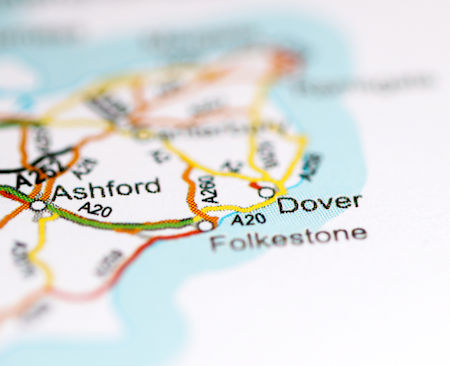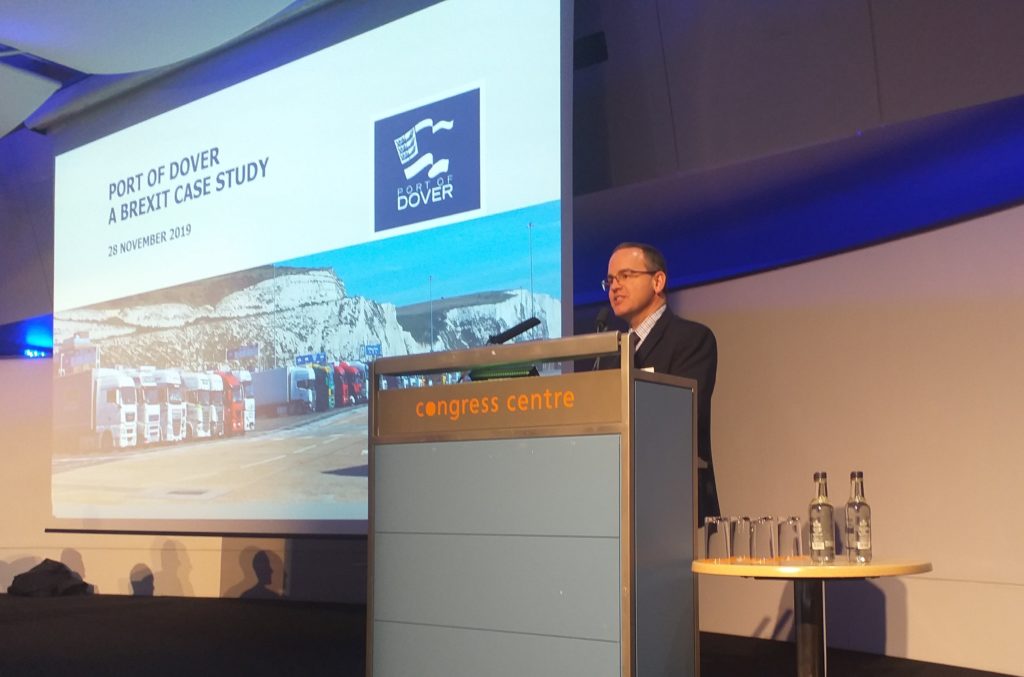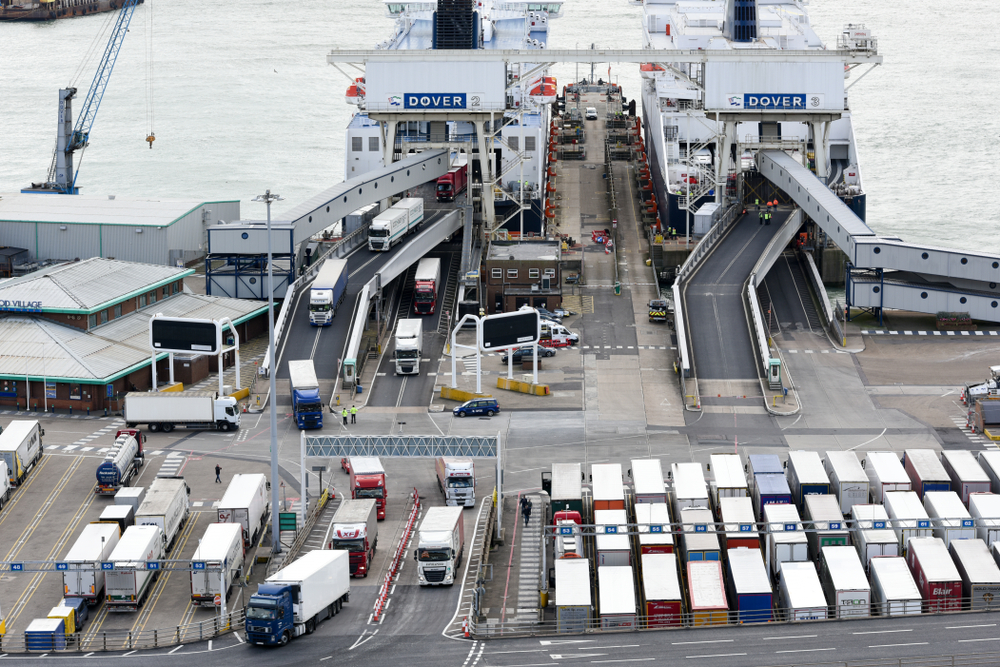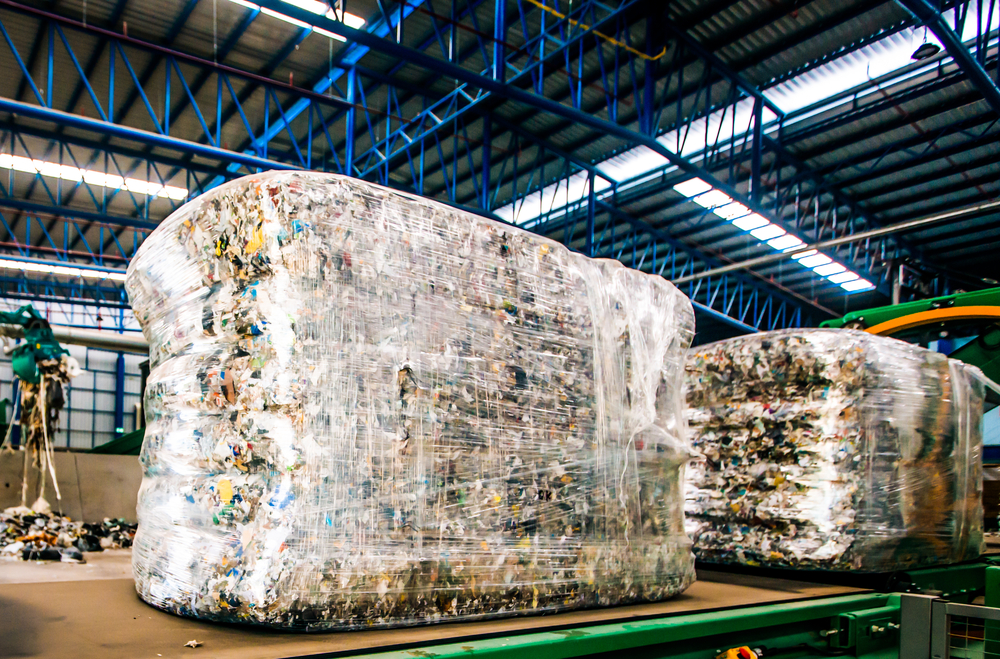The head of EU exit at the port of Dover reassured exporters of Refuse Derived Fuel (RDF) today, 28 November, that the flow of traffic from Britain into Europe “should continue uninterrupted” after Brexit.
Tim Reardon, company secretary and head of EU exit at the Dover Harbour Board, was speaking at the RDF conference at the TUC in London.
Mr Reardon said: “The port of Dover is prepared for Brexit and what it may throw at us.
“We do have processes in place to ensure that the traffic can continue to flow at its current rate and hopefully at a higher rate than it does now after Brexit, notwithstanding the imposition of a border controller process.”
The current deadline for Britain leaving the EU is 31 January 2020, having been extended again from 31 October andDover is the preferred gateway for European traffic, with up to 10,000 freight lorries passing through the port daily.
Since the referendum many in the industry have expressed concern than exporters of RDF could be hit with increased friction to RDF movements due to the imposition of customs controls, while others have also raised concerns over potential tariffs.
Customs
Currently all traffic passes through Dover without stopping, and Mr Reardon said he was keen for the imposition of further border controls not to interrupt the flow.
After a potential Brexit there will be no further physical examinations for freight lorries, nor will there be any changes to passport or driving licence controls, he explained.
Instead, Mr Reardon said, the onus will be on those at the start of the supply chain to ensure the driver of a laden lorry has a customs document with a barcode before the lorry reaches the port.
Those at the end of the supply chain receiving the contents of the lorry will have new obligations to check that everything is as specified on the customs document.
“When you’re dispatching a load make sure you give the driver a customs document before he leaves your premises, because it’s an awful lot easier to do it then than it is to try and get it to him subsequently,” Mr Reardon noted.
He continued: “If you are the haulage company collecting a load make sure you collect a customs document at the same time, because you will need it if you want to get that load through the port, and frankly, if you haven’t got it, don’t bother coming.”
Physical investigations will be limited to when there are specific concerns about the contents of a lorry.
Later in the talk Mr Reardon confirmed that empty lorries will require no documents.
Neighbours
The ports in Calais and Dover are equally prepared for Brexit, Mr Reardon added, having invested in, designed and built systems that enable traffic to pass through just as it does today.

Mr Reardon said the flow of traffic from Britain into Europe ‘should continue uninterrupted’ after Brexit
He said: “French customs has worked extremely hard to prepare itself for Brexit.
“If it happens, and it if happens when the traffic continues to flow smoothly, I think we will all owe a debt of gratitude to the investment that a lot of European agencies have made to deal with a problem that was not of their making.”
The new systems allow ferry operators to capture the details of customs documents presented by lorry drivers and pass them to customs officers and other border control agencies on both sides of the channel.
RDF
Speaking at the same conference, Jacob Hayler, executive director of the Environmental Services Association, praised DEFRA on their preparations for RDF regulations in the event of Brexit.
He said: “They did a pretty good job negotiating some of those bilateral regulations to make sure that if a no deal Brexit had happened back in March that, from a regulatory perspective, we would have been able to continue those movements of RDF.
“I think that if come January we end up facing the same scenario we will be in a position where I think the expectation would be that we’d be able to rollover some of the regulatory requirements, and those materials would be able to continue to move at least in principle, even if in practice there might be some disruption in terms of some of the logistics.”
The post RDF exports ‘won’t be hit by Dover delays’ appeared first on letsrecycle.com.
Source: letsrecycle.com Waste Managment





